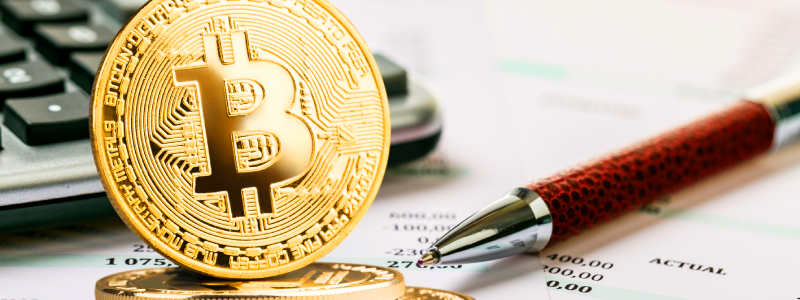In a rapidly changing technological and economic environment, a cryptocurrency accountant can help you stay on top with tax planning and safeguard you with compliance requirements.
The cryptocurrency revolution isn’t coming — it’s already here. With crypto adoption now at an all-time high, there are more new cryptocurrency investors, traders, and users than ever before. The cryptocurrency ecosystem has come a long way from early 2010, however tax is now a critical element of the crypto world.
Ensuring that your crypto actions are properly reported is extremely important. Regulatory and tax authorities in Australia and abroad now have access to sophisticated blockchain analysis tools and are able to access user information from online cryptocurrency exchanges.
Getting cryptocurrency tax right can be difficult, but that why you get a cryptocurrency accountant to manage your tax situation. We’ve put a together detailed guide of cryptocurrency tax in Australia, breaking down cryptocurrency tax for businesses in Australia, as well as crypto tax for everyday traders or hobbyists and crypto tax for crypto miners.
This guide will also provide insight into the way exchanges and other platforms are taxed in Australia, as well as providing guidance on what happens to your tax if your exchange is hacked.
Crypto Tax Basics
Crypto tax accounting in Australia is fairly complex and evolving from a legislative view. Regardless of whether you are operating a cryptocurrency business, accepting cryptocurrency as a payment method in Australia, trading on a daily basis, or simply buying crypto as a long-term investment, there are tax obligations that you will need to fulfil.
Tax Treatment of Cryptocurrency in Australia
The ATO provides very clear guidelines regarding the tax treatment of cryptocurrencies. According to the ATO, Bitcoin and other cryptocurrencies are neither money nor are they foreign currency — instead, Bitcoin and other cryptocurrencies are classified as property and are thus an asset subject to capital gains tax.
- Getting started with cryptocurrency tax and following ATO cryptocurrency tax guidelines means following a few basic guidelines. No matter what you’re doing with crypto currency in Australia, you’ll need to:
- Keep accurate records: Keeping highly accurate records is critical, and will ensure that you’re not overtaxed
- Ensure your investment is protected: Cryptocurrency is a powerful tool — but places security in the hands of the user. Ensure that your cryptocurrency is secured
- Determine your status according to the ATO: Are you a crypto investor or crypto trader? Are you conducting business-like activities with crypto, or are you a hobbyist? It’s essential to determine what classification of cryptocurrency user you fall under
- Develop a crypto tax strategy: EOFY crypto tax obligations are similar to other tax obligations — they require careful record keeping. Ensure you’re prepared for the end of the financial year
- Understand your reporting obligations: Have you purchased cryptocurrency for a friend or a family member? You might be liable for the tax bill on the crypto you bought them.
Crypto Tax Record Keeping & Reporting
Record keeping is arguably one of the most important things to remember when planning for your cryptocurrency tax in Australia. The ATO is currently collecting a broad spectrum of data regarding cryptocurrency traders and investors and is focusing on linking identity information with transactions and trades.
Each time cryptocurrency is disposed of in Australia, regardless of whether it is traded for fiat currency or for cryptocurrency, the trader could potentially incur capital gains tax obligations. At tax time, the total amount of tax that needs to be paid will be calculated — this is why it’s important to keep crypto trade records for tax.
- If you don’t log the time and date of your trades, your tax obligations could be calculated based on the current market value of the disposed assets at review time. This could have a potentially disastrous impact on your tax bill.
For detailed information on how to ensure you’re keeping accurate crypto tax records, see our guide on Cryptocurrency Recordkeeping & Reporting.
There are also a number of powerful tools that can streamline the record keeping process, such as BearTax & CoinTracking. These tools allow a trader & cryptocurrency accountant alike to automatically gather accurate trade time and date data from exchanges.
Protecting Your Crypto Investment
Cryptocurrency places the security of crypto-assets under the responsibility of the owner. This is part of what makes cryptocurrency so powerful and is a key feature of decentralization — but also forces traders and investors to maintain a highly vigilant stance against theft, fraud, hacking, and loss.
Hackers steal crypto through a variety of different methods that can be extremely difficult to prevent if you’re not using dedicated hardware to store your crypto. The vast majority of cryptocurrency thefts occur either due to the practice of storing cryptocurrency on centralized exchanges, or due to lax user security practices.
- To keep your cryptocurrency safe, follow these tips:
- Secure your sim: Ensure that your telecommunications provider is under strict instruction not to divert your SIM details to any other device
- Don’t store crypto on a centralized exchange: Exchange hacks happen. Don’t get caught out — move your crypto to a cold wallet solution for long-term storage
- Avoid phishing scams: Always ensure you’re dealing directly with the exchange or platform on which you store crypto
- Use a strong password: Never repeat the same password. Set up a dedicated email address specifically for cryptocurrency accounts.
For more guidance on how to protect your cryptocurrency investment, take a look at our Protecting Crypto: Best Practices guide.
Crypto Tax: Are you a Crypto Investor or Crypto Trader?
The way in which you use cryptocurrency plays an important role in the way you are taxed. The line between “trader” and “investor” is important — when does the ATO consider an investor to be a trader?
The difference is relatively simple — if you’re buying cryptocurrency and holding it for a long time in order to realise a long-term profit, then you’re likely to be classified as an investor. If you’re buying and selling cryptocurrency over short term periods with the goal of generating profits over the short term, you’re probably a trader.
- The ATO will take the following factors into account when assessing a cryptocurrency user and determining whether they are a trader or an investor:
- Profit goals: Are you attempting to generate a profit from your trades? The ATO is likely to consider you to be a trader if you operate with the goal of generating profit
- Capital investment: The amount and manner in which you invest capital into cryptocurrency can have an impact on whether you are classified as a trader or an investor
- Trading habits: How frequently do you trade? The repetition and volume with which you trade are taken into account by the ATO
For more information that will help you determine whether you fall under the classification of cryptocurrency trader or investor, take a look at our Crypto Trader vs Crypto Investor checklist.
Crypto Tax Strategies
The tax man comes at the same time every year for everybody — crypto traders, investors, and businesses alike. In order to ensure you’ve fulfilled all of your crypto-related tax obligations, it’s essential to follow a concrete crypto tax strategy.
Put simply, the ATO is interested whenever cryptocurrency is disposed of — an activity that will likely incur capital gains tax. The ATO wants to know when you use cryptocurrency to pay for goods and services, give crypto away as a gift, accept cryptocurrency at your business, or trade or exchange cryptocurrency for fiat currency or any other fiat currency.
- When you’re getting ready to do your crypto taxes, there are a few major data points that you’ll need to collect as part of an effective crypto trading tax strategy:
- Log every trade you make: It’s important to log every single trade you make, on every single platform. This ensures you are taxed at the correct rate, and can be made easier through the use of automatic crypto tax software
- Log any gifted cryptocurrency: Whether you give cryptocurrency away or receive it as a gift, records are critical
- Log any crypto received from airdrops or chain splits: Airdropped crypto is “free,” but the ATO still wants to know about it
- Log any cryptocurrency received as income: Whether you’ve accepted crypto at your business or generated crypto through mining, records are critical.
For more information on effective crypto currency tax strategies, see our Crypto Tax for Holders, Traders and Hobbyists guide. If you’re interested in the tax implications of giving cryptocurrency as a gift to friends and family, or buying cryptocurrency on behalf of a third party, see our Buying Crypto for Family or Friends & Gifting Crypto guide.
Crypto Tax for Businesses
Offering your customers the option to pay for goods and services with Bitcoin or other cryptocurrencies can deliver a wide range of benefits. Cryptocurrency acceptance is ideal for cryptocurrency maximalists seeking to capitalize on the growing value of cryptocurrencies, or for retailers and ecommerce platform operators seeking to expand their client base.
Setting up cryptocurrency payment options at your business is relatively simple — but crypto tax for Australian businesses accepting crypto can be a little bit more complicated.
The Tax Implications of Accepting Crypto at Your Business
There are multiple ways in which a retailer or business may choose to accept cryptocurrency for goods and services — each has a different effect on the way tax is managed.
There are many service providers that offer business a complete crypto acceptance system. These often provide instant conversion services, which means the business itself doesn’t need to accept or hold cryptocurrency at any point. In this case, the business is able to fulfil their tax obligations normally and won’t need to do any extra leg work for cryptocurrency tax.
If a business chooses to accept cryptocurrency in return for goods and services, however, things can get a little more complicated. In most cases, there’s a large amount of “paperwork” to fill out — to learn more about how to deal with the tax implications of accepting cryptocurrency at your business, check out our Businesses Accepting Crypto — Tax Implications guide.
Cryptocurrency and GST
Do you need to pay GST on cryptocurrency in Australia? Investors, traders, and hobbyists need to remain aware of the potential GST implications for cryptocurrency activities, regardless of the way they use cryptocurrency. The ATO is constantly redefining Australian cryptocurrency tax accounting law, so it’s important to keep up to date on new ATO crypto tax news.
Since July 2017, the purchase and sale of cryptocurrency within Australia is not subject to GST, but this can change depending on the way cryptocurrency is used.
Crypto traders and miners generally don’t need to worry too much about GST — but new enterprises considering launching an initial coin offering in Australia should consider the possibility that the token sold in a crowdsale could potentially have GST obligations.
For more information on cryptocurrency and GST in Australia, see Fullstack’s Cryptocurrency and GST guide.
Crypto Trading as a Business
Australians benefit from some of the most progressive cryptocurrency tax structures in the world. A major advantage offered to Australian crypto traders is the possibility to operate as an Australian crypto trading business, which offers some compelling tax benefits.
- Cryptocurrency trading businesses in Australia benefit form:
- Expense claims: If you qualify as a crypto trading business, it’s possible to claim all business-related expenses, such as hardware and software, as part of the $30,000 small business asset write-off
- Tax concessions for small businesses: Crypto traders can be small businesses too — small businesses benefit from an offset worth up to $1,000, as well as reduced tax rates
- Loss rules: The loss rules for trading businesses allow traders to claim losses against their taxable income in specific situations (namely achieving $20,000 turnover in the year)
- There are several additional benefits to operating as an Australian cryptocurrency trading business, but qualifying as a trading business is not simple. To qualify as a crypto trading business in Australia, traders must:
- Operate in a business-like manner
- Consistently execute high volume, repetitive transactions
- Focus on short-term profit
- Invest significant capital in cryptocurrency trading
For more information on crypto trading as a business in Australia and to find out whether you qualify as a cryptocurrency trading business, take a look at Fullstack’s Crypto Trading as a Business 101 guide.
Cryptocurrency Mining Tax
Trading isn’t the only use of crypto that can complicate tax. Contributing to the maintenance and operation of blockchain networks through mining can be profitable, but it can also significantly increase your tax obligations.
Generally speaking, cryptocurrency is divided between hobby mining and commercial mining under Australian tax law. Australian Crypto mining tax laws allow small-scale miners to operate home-based mining operations with fairly basic tax obligations.
- Hobby mining tax in Australia: Gains made from disposing of coins within 12 months are taxed at 100%, while coins disposed of more than 12 months from mining acquisition are taxed at 50%
- Commercial mining, in which a large amount of capital is invested in the operation of a large-scale mining data center or similar, is taxed differently:
- Commercial mining in Australia: Profit generated through mining is 100% assessable, with equipment costs, operational costs, and losses all deductible.
For more information on mining & crypto tax accounting, see the Fullstack guide on Cryptocurrency Mining Taxes.
Advanced Crypto Tax & Trading
In addition to basic tax obligations, there are a number of other more complex factors to consider when planning your crypto tax strategy.
What Happens to Your Tax if Your Exchange is Hacked?
Cryptocurrency, when stored correctly, is arguably far more secure than traditional fiat currency. Centralized exchange platforms, which form the foundation of the current cryptocurrency market, are not secure. The history of cryptocurrency trading is littered with major hacks, with more than $1.3 billion in cryptocurrency stolen from exchanges to date.
If you lose cryptocurrency in an exchange hack, your losses will likely affect your tax obligations. To learn more about what happens to your tax bill when your crypto is hacked, take a look at the Fullstack guide to the Tax Implications of Exchange Hacks.
Crypto Lending & Other Applications
Cryptocurrency can be used in many ways — outside of use as a means of transferring and storing value, cryptocurrency can also be used to secure income in many other ways. Staking cryptocurrency on major proof of stake networks is one method, but crypto-backed loans has recently become a popular option for traders seeking to “cash out” on their crypto holdings without completely eliminating their position in the market.
In some cases, crypto-backed loans can be used to generate fiat currency without creating the associated tax obligation of cryptocurrency disposal — although a number of tax rules still apply. To learn more about crypto-backed loans and lending, read the Fullstack guide to crypto lending.
Fullstack’s team of cryptocurrency accountants are committed to providing up-to-date, reliable, and actionable information regarding the taxation of cryptocurrency in Australia. For more information on cryptocurrency tax and much more, take a look at the Fullstack Crypto Tax Library.
Was this article helpful?
Related Posts
- Cryptocurrency Mining Taxes
If you're currently mining crypto, it's important to learn how cryptocurrency mining is taxed. This…
- BearTax - A Crypto Tax Accountant's Review
BearTax is a crypto tax tool that helps streamline the collection of crypto trade data…
- EOFY Crypto Tax Planning Checklist
Crypto taxes can be extremely difficult to complete correctly. In this guide, we’ll take a…
- Cryptocurrency and GST
If you're into cryptocurrency, this guide will help you know how the Goods & Services…

















